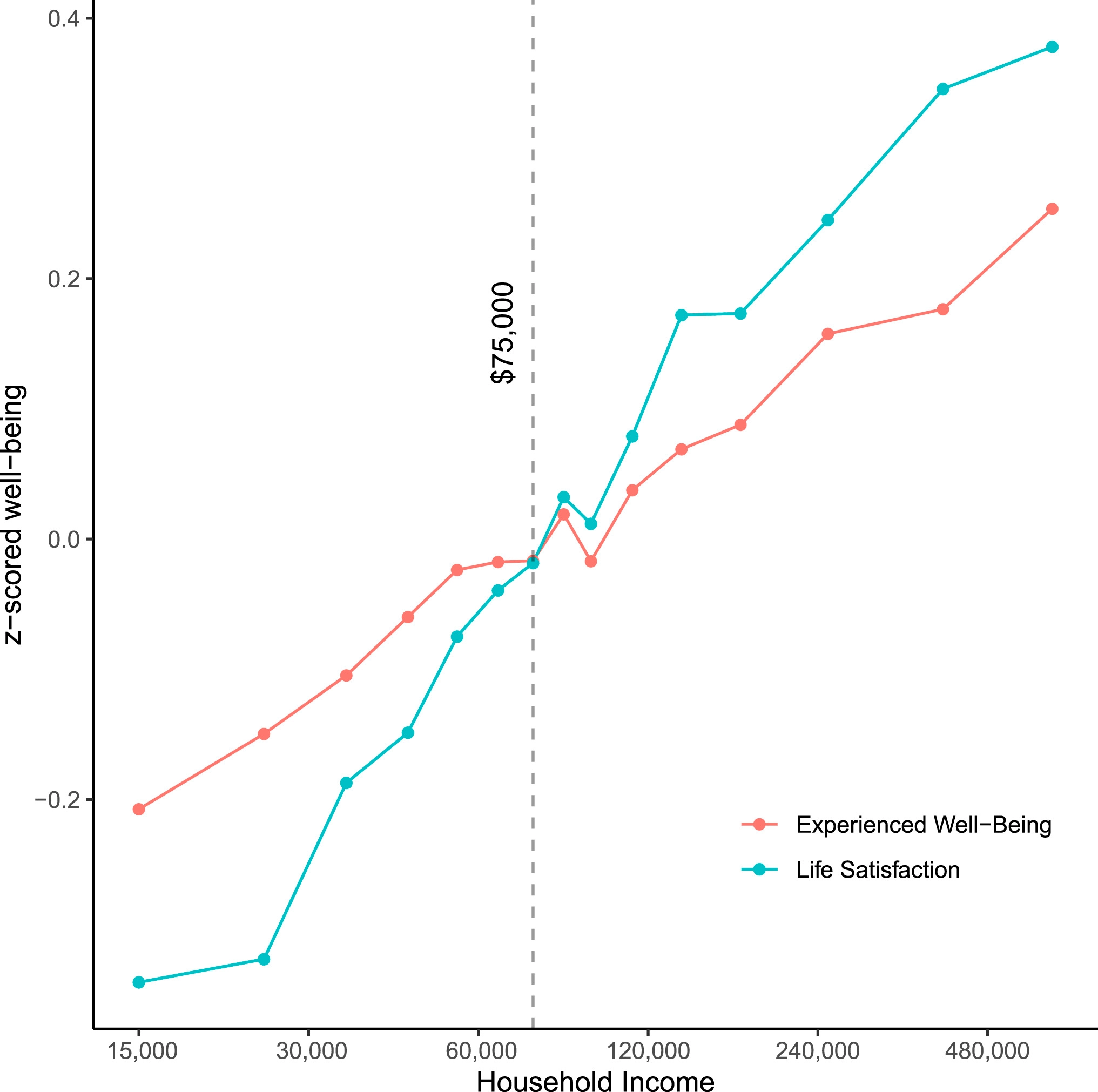Turns out that money does buy happiness. You may have heard that people’s average happiness stops improving once you make more than $75,000/year? Researchers did a better survey with more data and found that that was not the case.
The researchers cited 5 methodological improvements over the old research that suggested that it didn’t matter after $75,000:
- They measured people’s happiness in real time, instead of having people try to remember past happiness levels.
- They measured on a continuous scale instead of discrete. (The survey had a slider between “very bad” and “very good”, instead of discrete options to choose from.)
- They measured on “dozens of separate occasions per person” using an app, instead of just a single questionnaire.
- They used a comparable scale for experienced well-being (people’s evaluations of their lives) and evaluative well-being (how people feel during the day-to-day moments of their lives).
- They included a large number of high-earning participants and measured higher incomes in more granular increments.
The data were collected from 33,391 employed adults (ages 18-65) in the United States. There were a total of 1,725,994 reports collected, so that’s ~52 reports per person.
You can see the results in the plot below. Note that the income axis is in log-scale.
